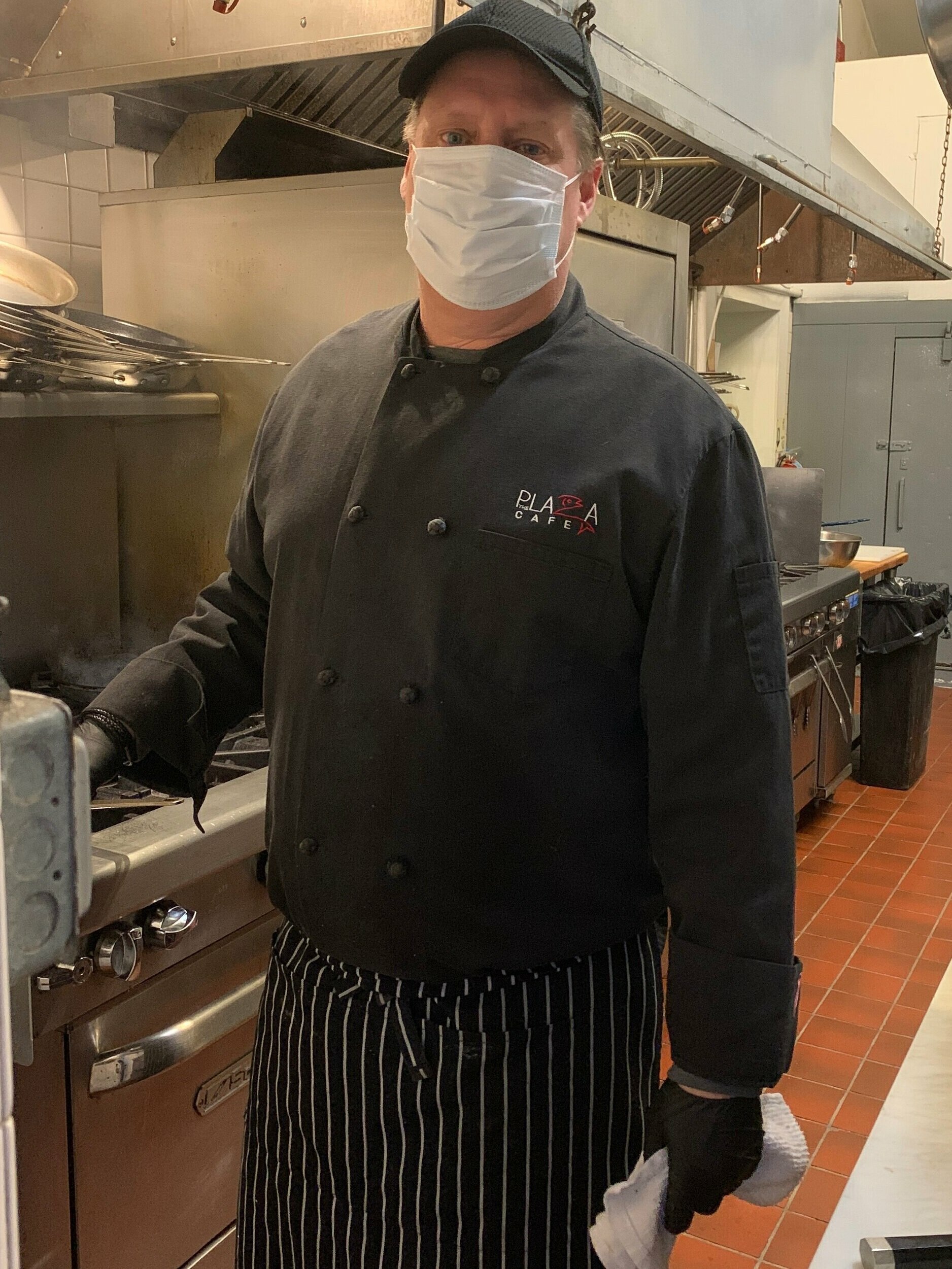Plaza Cafe Is At A Crossroads Due To COVID-19

 1 Photo
1 Photo
-
Doug Dulija, chef and owner of The Plaza Cafe in Southampton, suited up for a day in the kitchen.
Doug Dulija, chef and owner of The Plaza Cafe in Southampton, suited up for a day in the kitchen.
 Michelle Trauring
Michelle Trauring on May 14, 2020
Doug Gulija has never had two consecutive days off in his 40-year career. He had never been home before 8 p.m. on a work night. And now, in the face...
